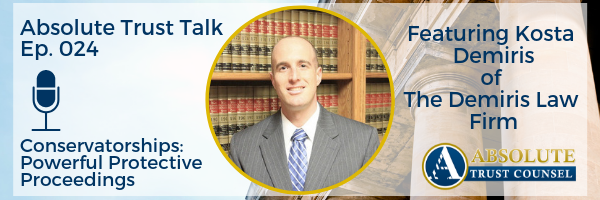It’s the classic movie scene: Three people are trapped underground with little hope for a timely rescue.
The first curls up into a ball and prepares for death.
The second starts talking about missed opportunities.
The third takes out a small notebook and writes a will.
When their bodies are discovered, the third person’s will is also found. But is it valid?
Under California law, holographic or handwritten wills are legal if they are signed and dated, and the handwriting can be proven to be that of the testator (the maker of the will). In particular, the instructions regarding the disposition of the estate must be in the testator’s handwriting. The will cannot be typed. It must be handwritten.
Holographic wills are often executed in emergency situations, for example, when death appears imminent. But that is not a requirement for a handwritten will to be valid. Anyone who is 18 and considered to be of sound mind can hand write a will. Unlike typewritten wills, no witnesses are required.
While a handwritten will may appear to be a simple and cost-effective alternative to a more formal document prepared by an attorney, if not properly written, the will may be invalidated. That means the disposition of the estate will be left to state law and the Probate Court. The estate holder’s wishes may have no bearing on who ultimately inherits his or her property.
Some common problems:
- Handwriting a will outside the presence of witnesses may give rise to a claim of incompetency. For example, if witnesses can testify to erratic behavior or other evidence of mental illness prior to the creation of a holographic will, it creates a suspicion that the testator was incompetent at the time the will was signed. Without evidence to refute those claims, such as the presence of a witness when the will was made, the document may be invalidated by the court.
- Lack of clarity. A testator may understand his intent when creating a holographic will, but others may not. A will must be written for those who are left behind. For example, it is common for beneficiary names, relationships, and locations of beneficiaries to lack specificity. Consider: “I leave my home and all its contents to my favorite cousin.” That is ambiguous. There may be several cousins, all of whom believe they are the deceased’s favorite. When it is unclear who the intended beneficiary is, the Probate Court may have to get involved. There is no guarantee the property will go to the intended heir. If the court cannot determine who the “favorite cousin” is, it may either divide the value of the home among all claimants or invalidate that provision of the will.
- Failure to plan for contingencies. What happens if a bequest is made to someone who has since passed away? If no provisions are made for a contingent or alternative beneficiary, that part of the estate is considered “intestate,” and will be distributed under state law. Similarly, if only one asset is bequeathed to a child and that asset is sold or destroyed, that child will receive nothing. Failure to plan for contingences could defeat the purpose of creating a will.
- Vague or erroneous property descriptions. Bequeathing “my favorite diamond earrings” is insufficient if you own two pairs of diamond earrings, just as gifting “my car” is vague when you own one car that functions and another that is up on blocks in the garage. Failing to adequately describe property could result in distribution of the wrong item to the wrong person. Similarly, interests assigned in a property or business must be clear. Stating that you want your loyal employee, Bob Jones, “to take over the business” does not bequeath ownership, it only expresses a desire that Bob run it.
- Failure to observe formalities. Even in a handwritten will, failure to observe certain formalities may result in confusion and an inaccurate fulfillment of the estate holder’s intent. For example, it is common to name an executor of a will, usually someone the testator trusts to carry out his or her wishes. Failure to name an executor requires the court to appoint someone. That person may be a stranger or a family member with adverse interests.
- Choosing the wrong vehicle to protect the interests of others. There are certain situations that are better addressed outside of a will, for example, the appointment of guardians for minor children and provisions for support. In addition, someone who is disabled and receiving benefits from the government could be adversely impacted by a direct inheritance, and direct bequests to addicts or minor children may be inappropriate. All of these matters are more effectively addressed through a trust, rather than a will.
- Incomplete wills. Problems also occur when a holographic will addresses only certain property in an estate, rather than all of the property owned by the testator. When that occurs, the property that remains will fall under the jurisdiction of the Probate Court, and will be distributed according to state law, rather than the testator’s wishes.
It is your legal right to create a holographic will. However, it is important to weigh the costs against the benefits. You may save money writing your own will, but if your heirs are required to hire an attorney and go to court to determine its meaning, any potential savings may be lost.


